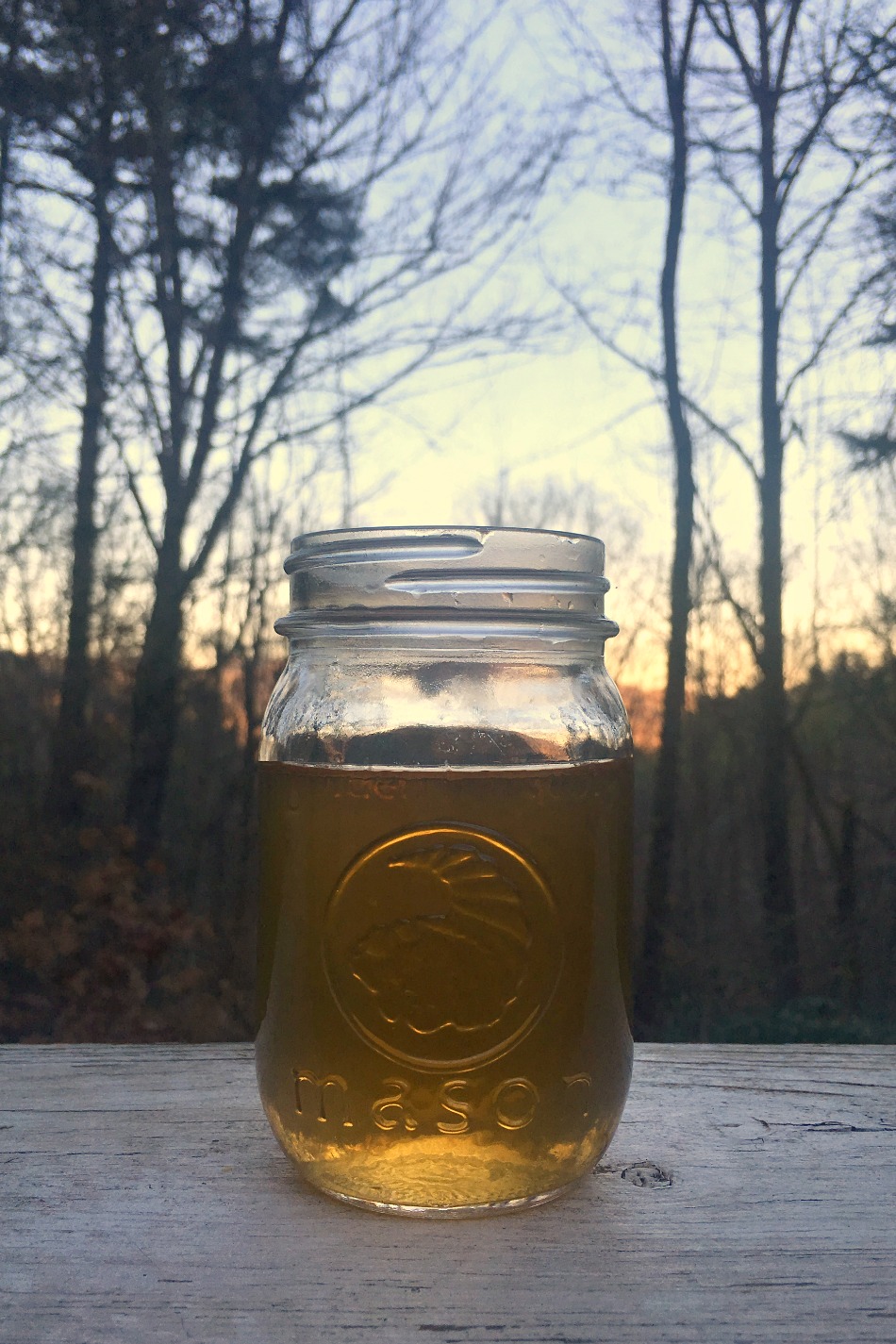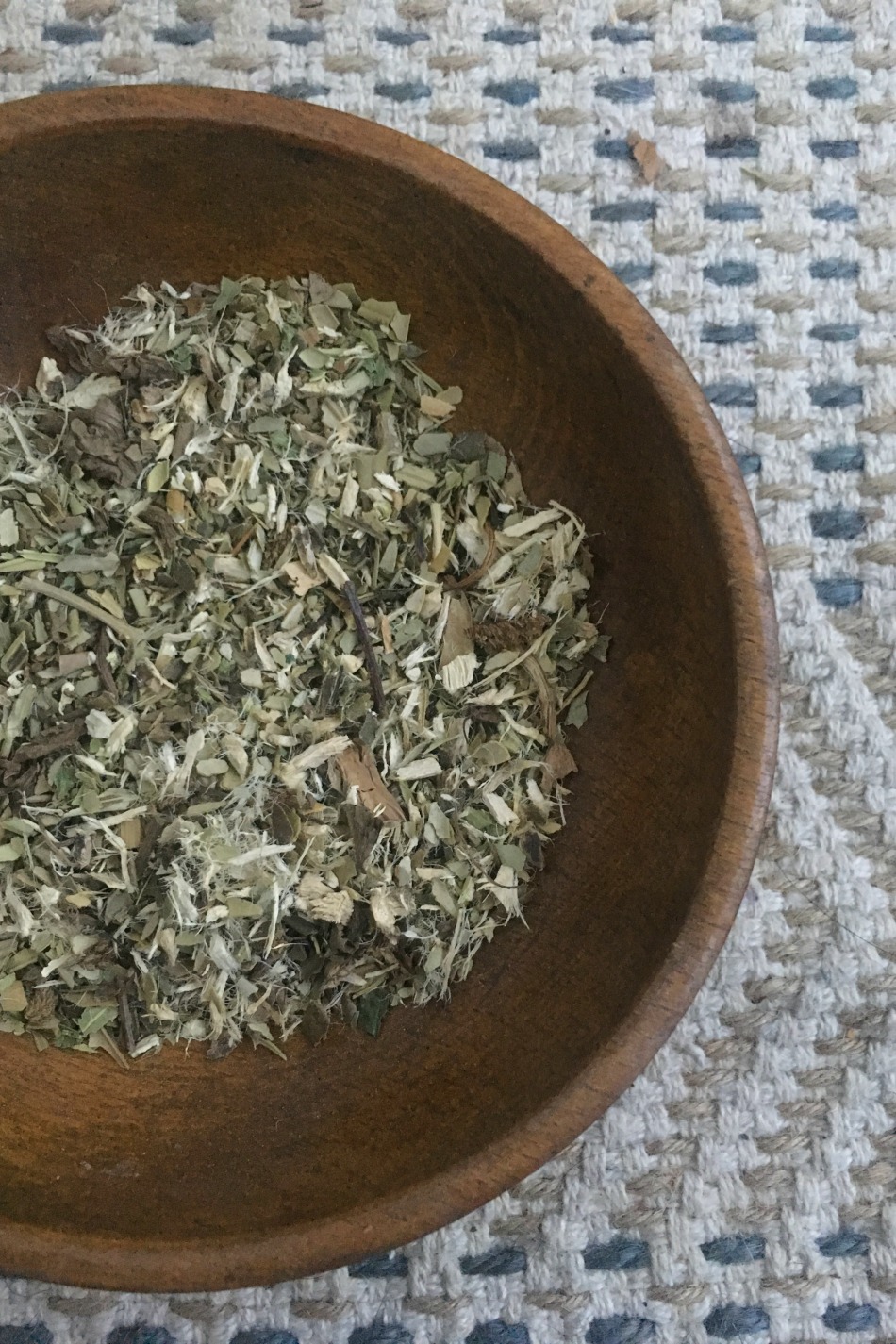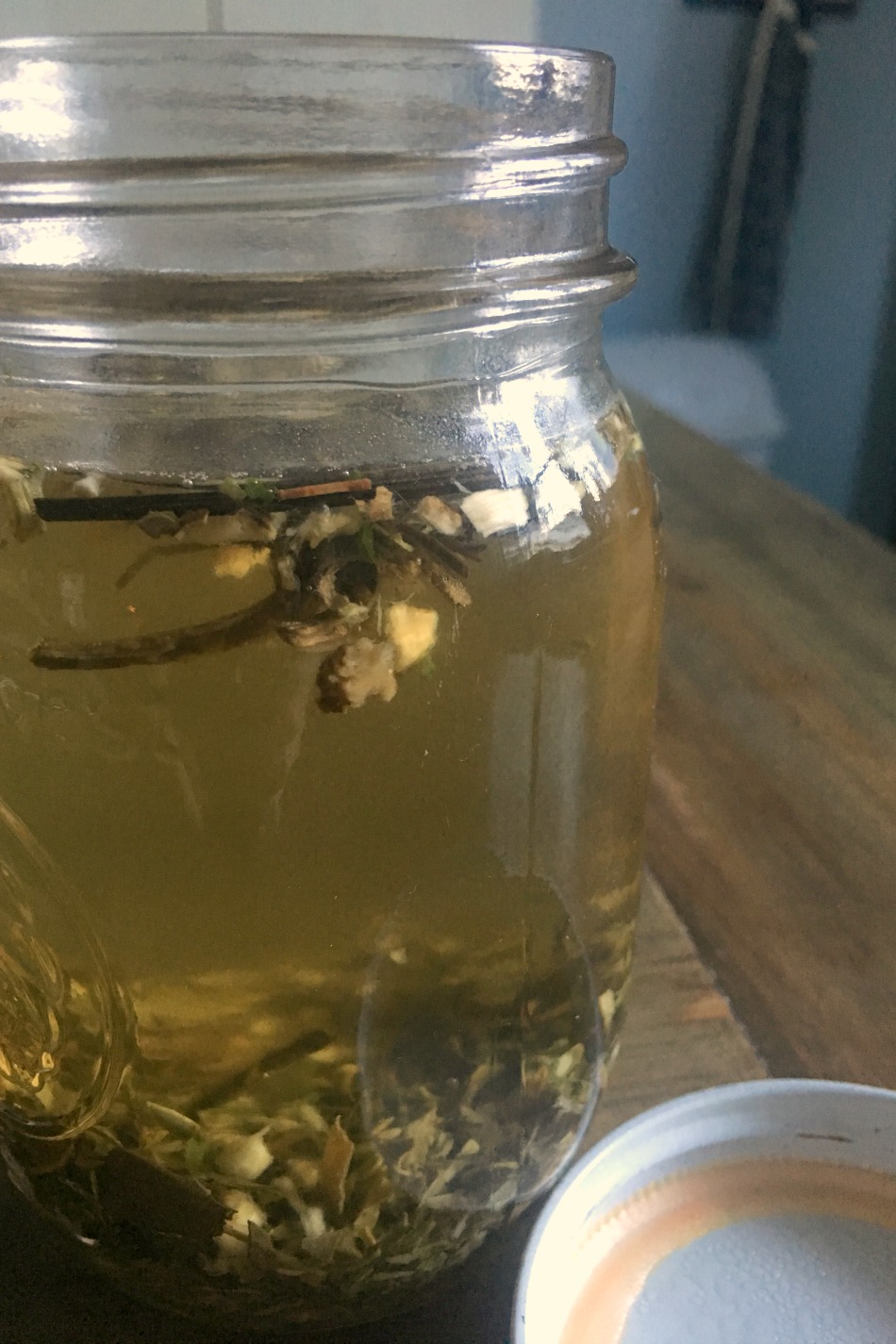What do deep-cleaning the house, seasonal clothing switches, and flea-bitten pets have in common?
They all cause sinus issues for me.
It never fails that anytime I decide to deep-clean my house, as in flipping mattresses, washing sheets and curtains, sweeping and dusting from ceiling to floor, etc. that I end up with a runny nose and trouble breathing at night.
Same goes when I switch out our clothes twice a year—pulling the coming season’s clothes out of the attic, sorting through to decide what to keep and what to get rid of, and making the switch. The next day I’m congested and have a headache.
And when flea season comes around! Oh, boy! That’s the worse! My dog is highly sensitive to fleas, and if we don’t get right on top of the situation, she starts scratching, tearing her fur out, and chewing on herself until she’s raw. And it never fails. Eventually, I start reacting to all the pet dander by having all the classic sinus inflammation symptoms.
Now, most times, when the symptoms of inflammation show up (a runny nose, sneezing, congestion), I get right on top of things to keep myself from developing a sinus infection. If I don’t, I will most certainly wind up with sinus pressure, headaches, and rainbow mucous (totally gross, I know) sooner than later.
Sinus infections are miserable, but thankfully, the chance of sinus inflammation leading to a full-blown sinus infection can be lessened with the help of some helpful herbal allies and by being proactive.
Because some of my first herbal successes were in this area, I thought I’d share my herbal sinus rinse tea formula with you today. Not only do I want to get this recipe on the blog, so it is readily available, but I think this is something that will be helpful to others as well.
What’s All The Hype About Sinus Rinses?
My mom was the first person to suggest sinus rinses to me, but at first, I wasn’t so sure about it.
Immediately, my mind went back to memories of a childhood friend who regularly had issues with her sinuses, tonsils, and adenoids. Because of chronic infections and antibiotic use, her doctor had advised her parents to have her sniff saline water each night before bed to minimize the chance that an infection would occur. Seeing my friend go through this process several times had caused me to associate sinus rinses in a negative light.
However, as my mom explained what she had learned about the benefits of sinus rinses and how gentle they were to use, I started to open my mind up to the possibility of using one the next time my sinuses were congested.
Sinus rinses are typically used to rinse the sinus cavities when congestion, colds, or allergies are present. They can also be used to moisturized dried sinuses as well (U.S. Food & Drug Administration, n.d.). There are various ways to rinse the sinuses. There are neti pots, sinus rinse bottles, bulb syringes, fine-mist spray bottles, and even battery-operated nasal irrigation devices. The idea is all the same—to introduce pure saline water into the sinus cavities to rinse them, removing excess mucous, debris, and possible bacteria in the process. According to FDA doctor Eric Mann, most sinus rinse devices, when used correctly and cleaned well between uses, are considered safe and effective (U.S. FDA, n.d.).
As soon as the next cold came around, I immediately purchased a sinus rinse bottle and used it. And you know what? It wasn’t an unpleasant thing at all. I suppose it was a little strange at first, but the results made it all worth it! Not only did my sinuses feel more open, but I had less pressure and pain in my face, there was less mucus production, and best of all, I didn’t end up with an infection!
What Kind Of Herbs To Use?
Now, being an herbalist, I always incorporate herbs into my self-care routine, when I’m well and when I’m ill.
When it comes to sinus rinses and decreasing the chance of a sinus infection, I like to make an herbal sinus rinse tea to use in place of plain water. I use this herbal sinus rinse tea along with saline as the solution for my sinus rinse bottle.
Most times, when a person has a cold or allergies, there’s a lot of mucus production. And while mucous is beneficial to the body (it pushes debris and bacteria out of the sinus passages), having excess mucous or mucous that is thick and stuck in the sinuses can contribute to bacterial growth, thus leading to a possible sinus infection.
I like to use herbs that not only moisturize the sinus passages, but herbs that help tighten and tone swollen sinus tissues and herbs that have antibacterial properties as well. For my herbal sinus rinse tea, I’m specifically using herbs that are demulcent, astringent, and antibacterial.
There are several options when it comes to choosing herbs with these actions. Below is a list of some common herbs that fit into these categories.
- Demulcent: marshmallow, slippery elm root, violet leaf, comfrey leaf
- Astringent: plantain, goldenrod, rose petals, white pine needles
- Antibacterial: echinacea, olive leaf, juniper needles, thyme
Note: Please do your research and only purchase herbs from companies that sell sustainably-sourced herbs. We want to keep these gifts around for future generations to come.
The following herbal sinus rinse recipe is what I use most often, but feel free to substitute any of these herbs for a different herb with a similar action. You can also learn more about creating basic herbal blends and formulas here.
An Herbal Sinus Rinse Tea Recipe
Ingredients:
- 2 parts marshmallow root and crushed olive leaf
- 1 part plantain leaf and echinacea leaf
Directions:
- Blend herbs and store in an airtight container. Place 1 tablespoon of your herb blend in a pint-sized glass Mason jar (increase to 2 tablespoons of herbs if using a quart-sized jar).
- Cover with boiled water, filling the jar to the top. Let this steep for 30-60 minutes to upwards of 4 hours. The longer this blend steeps, the more moisturizing it will be for your sinuses as cool water extracts more of marshmallow’s mucilaginous properties.
- Strain and compost herbs. Filter liquid through a coffee filter 1-2 times to remove any herb particles.
- Use herbal sinus rinse tea as soon as it reaches room temperature. Store extra in the refrigerator.
Usage:
Always follow the directions recommended for your particular sinus rinse device. Just replace the amount of water called for with your herbal sinus rinse tea and follow the rest of the instructions as written. I like to warm my herbal sinus rinse tea over low heat to dissolve the salt into it before letting it cool to room temperature and putting it into my sinus rinse bottle or neti pot.
Storage:
You can blend these dried herbs and keep them for 1-2 years when properly stored. Once the herbal sinus rinse tea is made, it should be stored in the refrigerator and used within 24 hours. Feel free to freeze your herbal sinus rinse tea in ice cubes to thaw and use when needed. Ice cubes will last around 6 months.
REFERENCES:
- U.S. Food & Drug Administration. (n.d.). Is Rinsing Your Sinuses With Neti Pots Safe. [Report]. Retrieved from https://www.fda.gov/ForConsumers/ConsumerUpdates/ucm316375.htm




SO wish I had read this last week, but ironically I was sick & congested with a cold 🙁 I love sinus rinses but was too scared to add anything else to my saltwater. I think I will next time though; always looking for a way to use my herbs. Any herbs you would suggest NOT using because they could burn etc? That would be a bad spot to test how sensitive you are to something lol.
Anything that can burn your skin would be no good to put in a sinus rinse. Garlic, cayenne, mustard, anything warming like that. Most times, cooling herbs that are drying (with a moistening herb thrown in for balance) is what I find helpful. Thanks for your comment Alissa!
5
Do you know if Goldenseal or Mullein would be good to use for this? Also, I have plenty of fresh plaintain growing in my yard, would I need to dry it before making the rinse, or could I mix some up with the fresh plant?
Yes to all of these herbs. Goldenseal is a great antimicrobial and mullein is often used for all sorts of respiratory complaints. So, yes. Both of these could be used. Plantain can be used fresh, but you’ll want to double the measurement, making it 2 parts if using fresh plantain. Best of luck!
Would this herbal rinse be safe for children/infants?
Yes, it should be safe.
Thank you for this article! Do you need to add salt to this to sto it from burning?
You don’t HAVE to add salt, but I like to add a pinch to sinus rinses when I make them.
4.5
there is concern for using Comfrey on mucous membranes or open wounds because of the alkaloids in it. It is better used topically
Yes, I address this very topic in this post, Comfrey Controversy: Can and Should One Use Comfrey Internally.
Can i use green tea for sinus rinse?
Hi there, Aleli! Green tea is astringent which means it helps to tighten and tone tissues, and it would be great if you had a lot of mucous production. So, yes, you could use green tea in your sinus rinse. It would make a great substitute for the plantain in this formula. You just want to be sure you use some moistening, demulcent herbs in your mixture because you don’t want to overly dry your sinuses out! Hope that helps!
For someone whose head is loaded with mucus and has had congestion problems all their life, I would think the goal should be to choose herbs to help loosen and release the metabolic wastes contained in the mucus and not try to stop their release (like western medicine does). To me, having a runny nose is a chance to get rid of wastes and not a symptom I want to stop which would result in further clogging the immune/lymphatic system
True for chronic issues and also for acute issues, to an extent. As you already seem to know, mucous is the body’s way of ridding it of whatever is irritating it. However, there is a time to let mucous flow and a time to slow it down. Same with anything… inflammation, fever, bleeding, diarrhea, so on and so forth. At first, it’s very cleansing and healing, but after a while, it needs to slow down. Of course, you would be doing other things to get to the root of the problem at the same time. The point I’m trying to make is that it’s not always wrong to try to ease uncomfortable symptoms.
How much salt would you add to this recipe? Too much or too little would burn. Ask me how I know?
Hey there, Carolyn. I actually don’t put salt in this sinus rinse blend. I suppose you could if you wanted to. I would start with 1/2 – 1 teaspoon for every 8 ounces of liquid. Make sure it’s dissolved and then strain the liquid through a coffee filter to remove any undissolved bits. Hope that helps.
I just made a tea with dried Scarlet Bee Balm from my garden and used it cut in half with water and a pinch of salt as a sinus rinse and it got rid of my sinus infection within 2 days! It’s definitely my new go to!
Yes! There are so many herbs that would be a fit for a sinus rinse. I just try to make sure they have a bit of antimicrobial, astringent, and demulcent properties. Good for you, and thanks for sharing your success!
Thanks for this.
I’ve just made a bee balm tincture in 80 proof vodka.
Could a dropper of tincture be used in the rinse if diluted enough?
Personally, I would prefer to use a tea for any sinus rinse, even over a diluted tincture. The alcohol can be drying to the tissues, and if you dilute the tincture to the point to offset that, I’m thinking it would be too weak at that point to be effective. Hope that makes sense. If you have fresh or dried bee balm, I would opt for that. Other wise, I’d choose some different herbs to use in a sinus rinse formula.